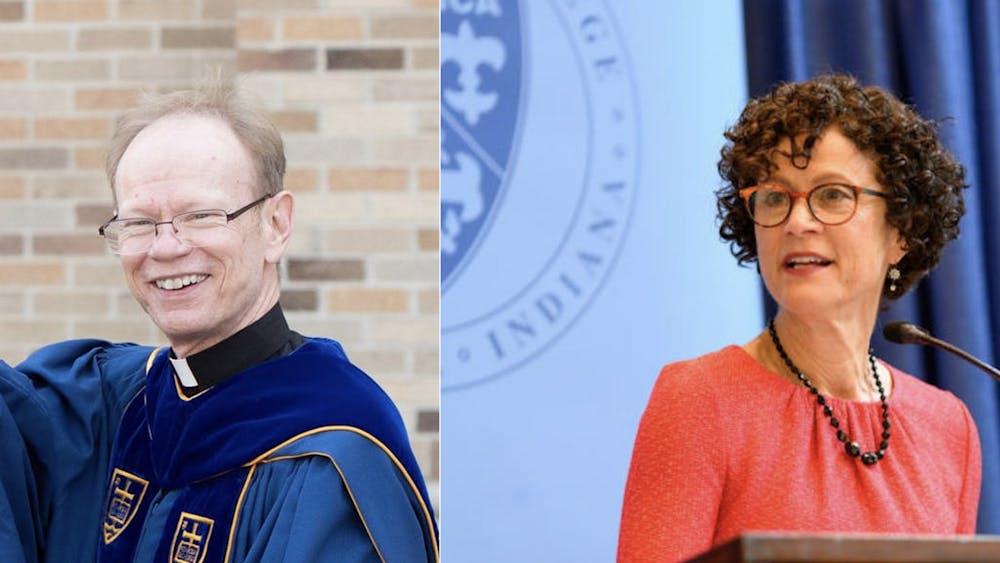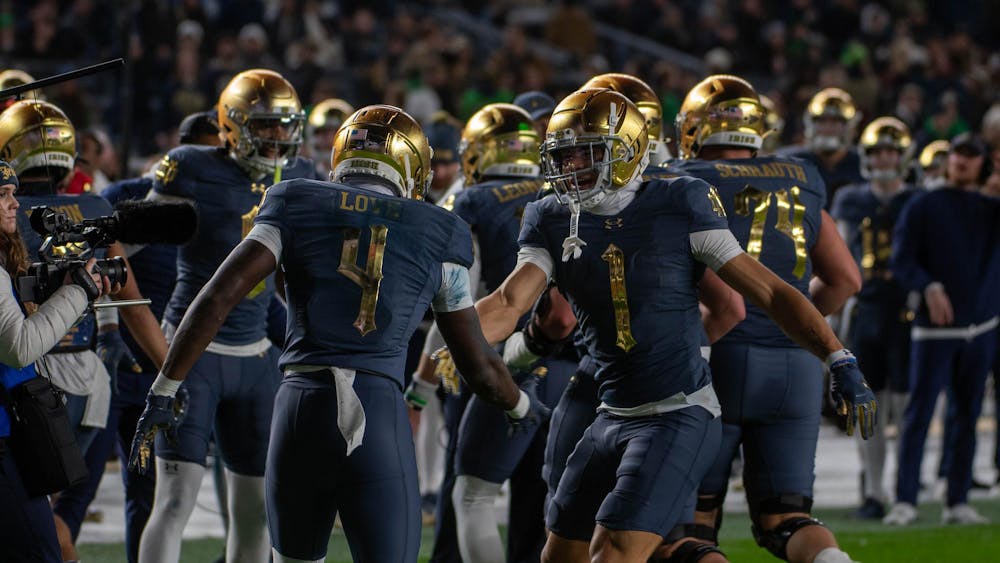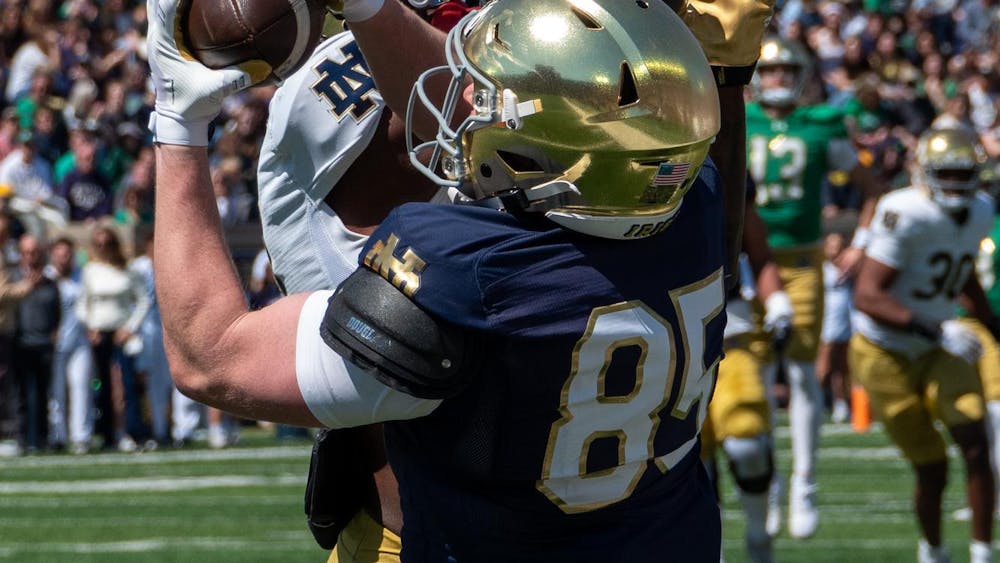ESPN Inc.’s lawsuit against the University hinges on Notre Dame Security Police’s (NDSP) status as either a public or a private agency, according to documents filed in St. Joseph Superior Court on Jan. 15.
The sports media giant’s lawsuit claims NDSP’s refusal to release campus police records violates Indiana’s Access to Public Records Act (APRA), which allows public access to records of public agencies. ESPN reporter Paula Lavigne requested police incident reports and logs related to student athletes in September and November 2014 but was turned down both times.
As evidence to support its claim, ESPN included two recent written opinions by Indiana Public Access Counselor Luke Britt, who departed from the statements of several of his predecessors to write that his office “considers [NDSP] a public law enforcement agency for future public access requests.”
The question of whether private university police forces should be considered public law enforcement agencies or not has come across the state’s Public Access Counselors’ desks many times. In its definition of “public agency,” APRA includes “any law enforcement agency, which means an agency or a department of any level of government that engages in the investigation, apprehension, arrest or prosecution of alleged criminal offenders.” It lists a variety of examples, including state police departments, excise police and conservation officers, but does not mention university police forces.
Notre Dame’s lawyers highlighted this detail in a written response sent to Britt in October which was filed with the lawsuit, stating “the General Assembly was quite careful to specify the law enforcement agencies that would be subject to APRA — those of government and those of political subdivisions. Private campus police departments were not included.”
A 2011 written opinion by former Public Access Counselor Andrew Kossack agreed with the University, explaining that the key difference between public and private agencies lies in the institution from which the police authority is derived.
Indiana law grants educational institutions the power to appoint police officers, prescribe the duties of its officers, direct their conduct, prescribe uniforms and operate emergency vehicles, and Kossack wrote it is crucial that these powers were granted “not to NDSP, but to ‘the governing board of an educational institution.’"
“Consequently, NDSP does not exercise State powers on its own; NDSP exercises only those powers granted it by the University’s governing body," Kossack wrote in his decision. "Consequently, if the NDSP is a public agency by virtue of the fact that it exercises the executive or other powers of the State, the entire University would be subject to the APRA along with NDSP.
“I do not believe the General Assembly granted police powers to private universities with the intent that doing so would subject the entire institution to the APRA.”
Kossack’s 2011 opinion lined up with the decisions of two of his predecessors who also determined that private university police departments are not public agencies. A 2009 opinion involved Valparaiso University, and a 2003 opinion involved Taylor University.
Britt’s Oct. 31 opinion differs from his predecessors’ statements on this matter. While previous counselors based their opinions on the university’s total authority over the police force, Britt’s statement notes that “the authority for private universities to create police departments is not inherent. It is granted by the State of Indiana through the General Assembly. … A private entity is deemed a state actor when the state delegates a traditionally public function to the entity itself.”
Britt cites NDSP’s description on its own website as evidence that the department “holds itself out to be an actor of the State of Indiana,” and reiterates that “police powers come from the State — they do not spring forth organically.”
“This may be inconsistent with previous Public Access Counselors’ opinions, but I do not believe that it is inconsistent with the spirit of the [APRA],” Britt wrote. “The ultimate test is from where their power is derived. The police force is established by the governing body of a private institution, but their powers are not inherent nor are they derived from Notre Dame University.”
Under this reasoning, Britt notified NDSP in October that his office considered it a public agency. Lavigne filed another document request in November and was denied again; after her second complaint to Britt’s office, his January response held that “if the Notre Dame Security Police Department has documentation regarding any suspected crimes, accidents or complaints involving the individuals named in [Lavigne’s] request and has not released that particular documentation, then they have violated the Access to Public Records Act.”
As an appointee of Indiana Gov. Michael Pence, Britt’s opinion is not compulsory and doesn’t carry the force of law. The superior court’s decision will.
In the October response to Britt’s opinion, Notre Dame lawyers argued that because the General Assembly could have defined “public agencies” more broadly to include all law enforcement departments, including university police forces, there shouldn’t be a reversal in opinion without a corresponding change in the law.
Notre Dame lawyers cited precedent beyond Indiana as well, where courts found police departments at Mercer University, Harvard University and Elon University were not public agencies. The lawyers’ letter to Britt also listed implications of NDSP’s status as a private agency beyond APRA — for example, under the Fair Labor Standards Act, university police “are not considered a ‘public agency’ engaged in ‘law enforcement activities’ for the purposes of determining whether its officers must work more than 40 hours … to qualify for overtime pay.”
“State police or other public safety officers also receive certain federal benefits that unfortunately are not available to the University’s police officers,” the letter stated. “For instance, public safety officers are eligible for federal death benefits. … The police officers of private universities are not eligible, given that they are not working for a ‘public agency’ under federal law — the very same concept that we must consider under APRA.”
Other differences mentioned include the Law Enforcement Officers’ Safety Act’s exclusion of the University’s campus police from being permitted to carry concealed firearms, the income tax University police officers must pay on personal and commuting miles of take-home vehicles received from the University that governmental and public police officers do not have to pay and federal assistance with body armor, which is available to state or governmental police but not the University police.
“Accordingly, there are fundamental differences between governmental law enforcement and private campus police departments,” the letter stated. “Broadening APRA beyond its plain terms and beyond prior [Office of Public Access Counselor] advisory opinions to include anyone who wears a badge would risk treating many private institutions, not just private universities like the University of Notre Dame, as ‘public agencies.’”
ESPN’s lawsuit asks the court to “order the Police Department to release the requested information for inspection and copying, order the Police Department to pay ESPN the statutory civil penalty, as well as reasonable attorney’s fees, court costs and other reasonable expenses of litigation and for all other just and proper relief.”
No hearing date has yet been set.
Read More
Trending








